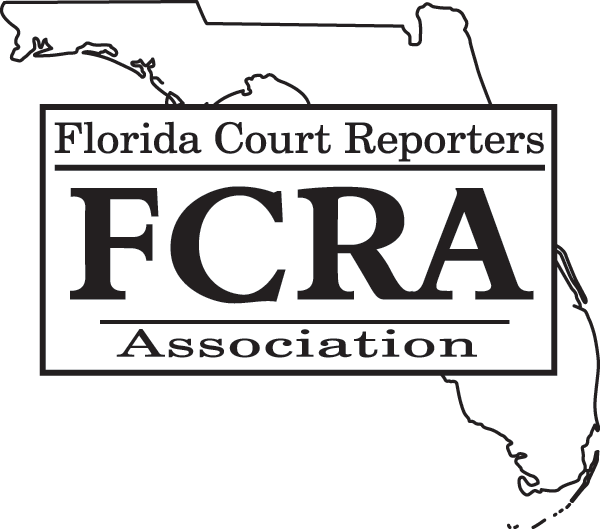Frequently Asked QuestionsWhy should I join FCRA if I'm already a member of NCRA? Membership in both FCRA and NCRA is essential. While NCRA membership is required to keep your designation and keep you informed on national issues affecting the profession, FCRA is the only organization committed to representing the interests of Florida reporters and agencies. We are experiencing difficult times, and your participation in your state association is key to keeping court reporters on the job in Florida. How can I get more involved in FCRA? FCRA could not function without members who volunteer their time to serve on committees. Every year our incoming president appoints members to serve on committees just prior to the Annual Convention. Check out the committee descriptions on this website and determine where you may like to contribute. Then go to the "Contact Us" tab and contact the committee chair of the committee that interests you and let them know you are interested in getting involved. Is certification required for court reporters in Florida? At this time there is no mandatory certification; however, Florida Rule of Judicial Administration 2.535 is a certification rule that is on the books. At this time, however, it is held in abeyance due to lack of funding. FCRA's hope is that it will become funded and all qualified reporters will be certified. Do I need to be a notary public to work in Florida? Yes. You are required to be a notary public in order to administer oaths, and all Florida notaries are required to follow the notary rules as set out in the Governor's Reference Manual for Notaries State of Florida. Do FCRA members have a Code Of Ethics? Yes. All FCRA members agree to abide by our Code of Professional Ethics (COPE) when they join our association. Is FCRA a member of Ethics First™? Yes. As a member of Ethics First, we encourage our members to join Ethics First™ and reject the unethical practice of gift-giving. What Is the standard transcript format in Florida? Florida Rules of Judicial Administration Rule 2.535 sets out the standard transcript format as follows: How long do I need to keep my steno notes? 2 years from date of transcription of judicial proceedings, arbitration hearings, and discovery proceedings when an original transcript has been prepared Can I swear a witness over the telephone? Under no circumstances should you swear a witness over the telephone. It violates the Florida Notary Law. Do I have to charge sales tax on my transcripts? Charges made by court reporters for transcripts or videotapes of proceedings are exempt from sales tax as professional services when furnished to parties to the proceedings. Charges for transcripts or video recordings to third persons who are not parties to the proceedings for which the reporter was engaged are taxable. Charges for attendance and stenographic or video recording of proceedings at a trial, hearing, conference, or similar function by a court reporter are exempt as professional services. Contact the Court Reporting Schools Committee chairs Sharon Velazco and/or Danielle Freeze Wall. |

